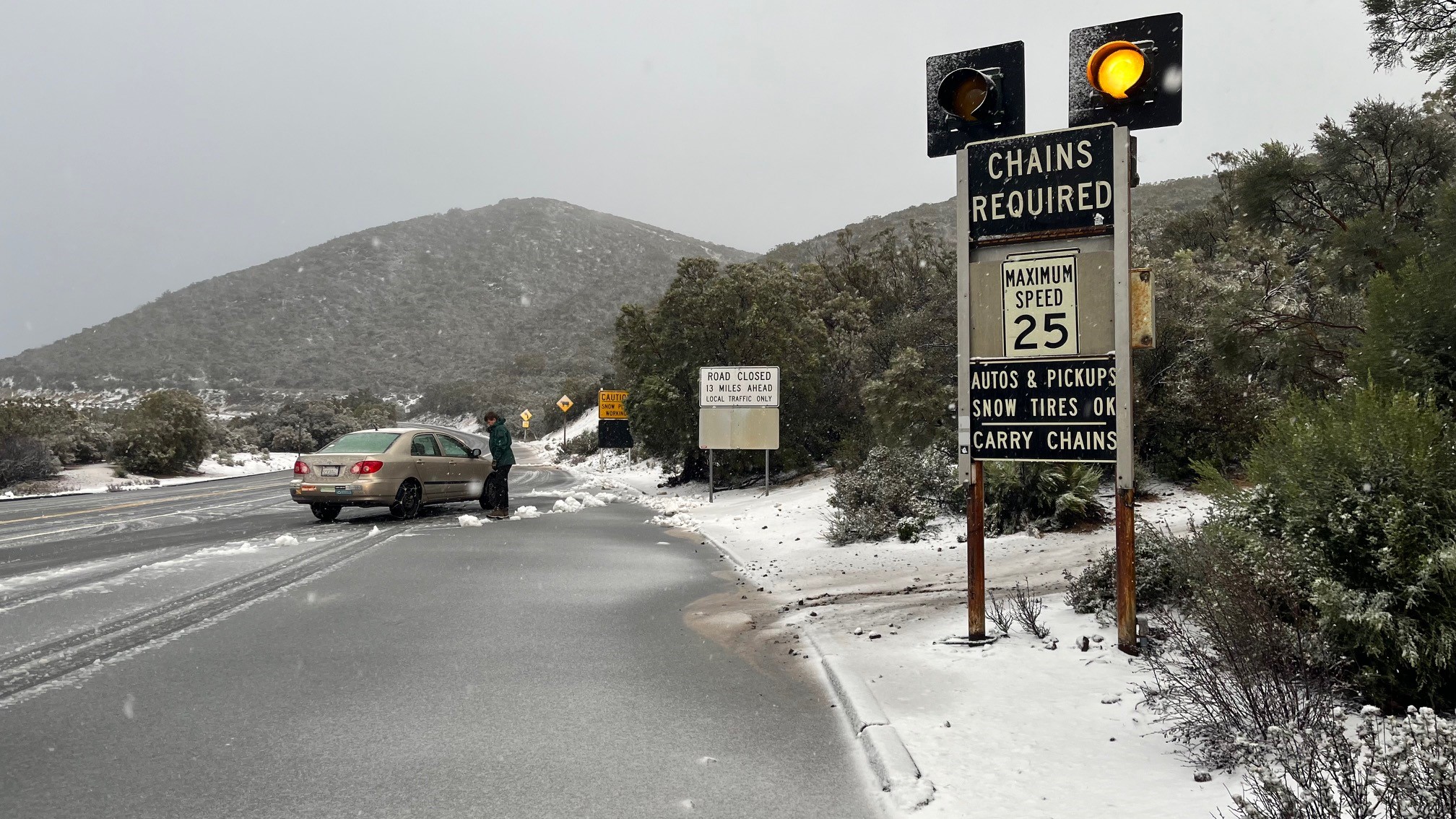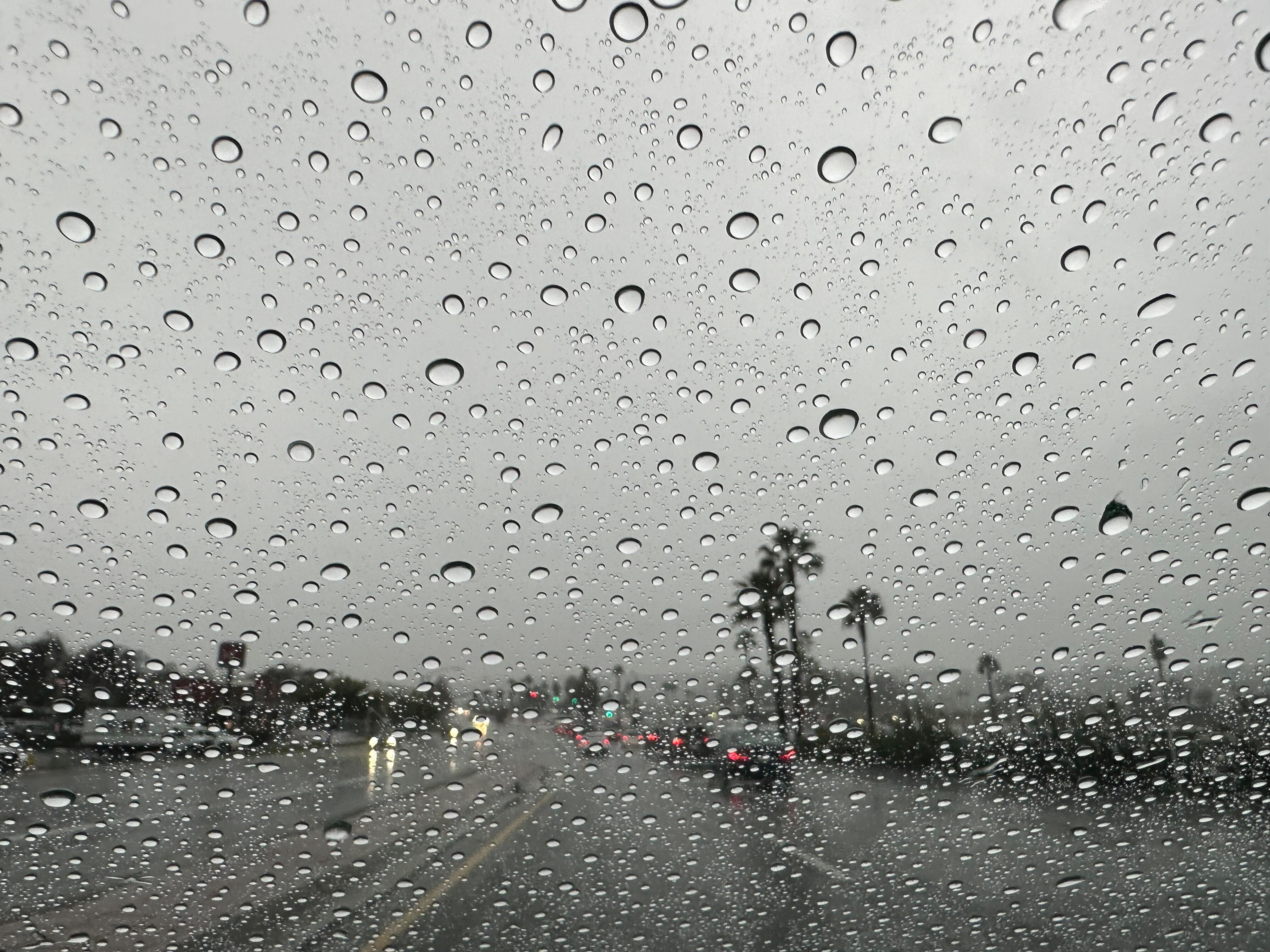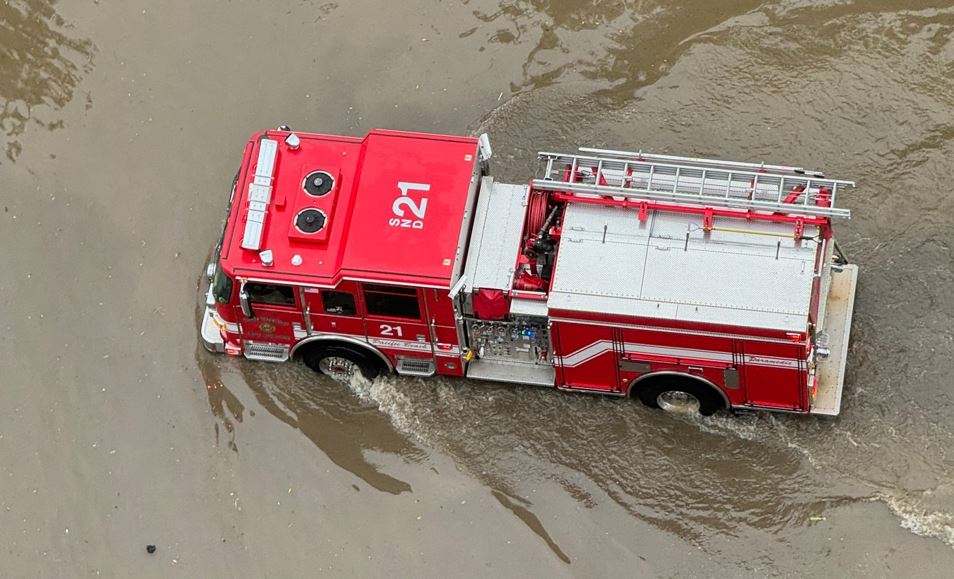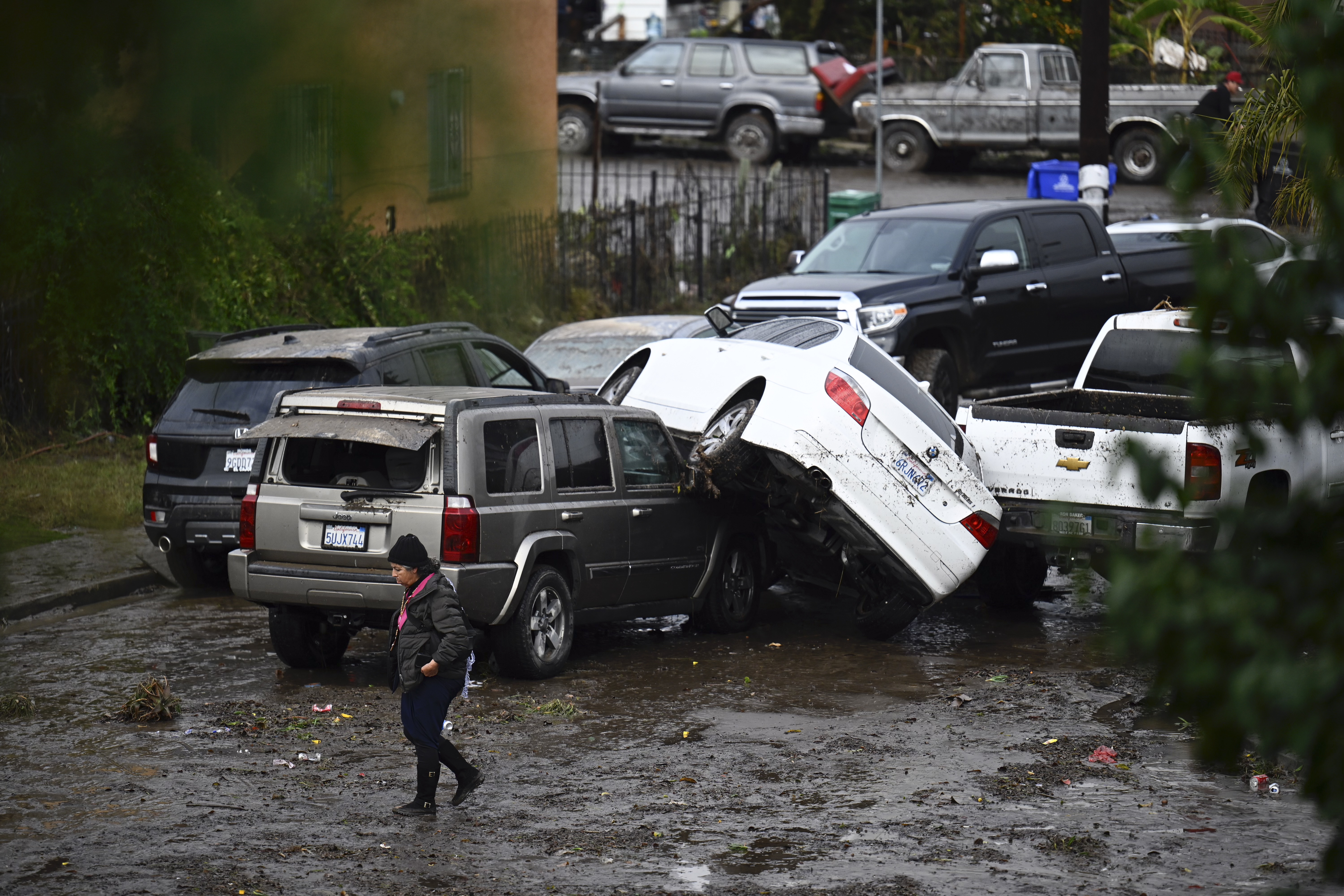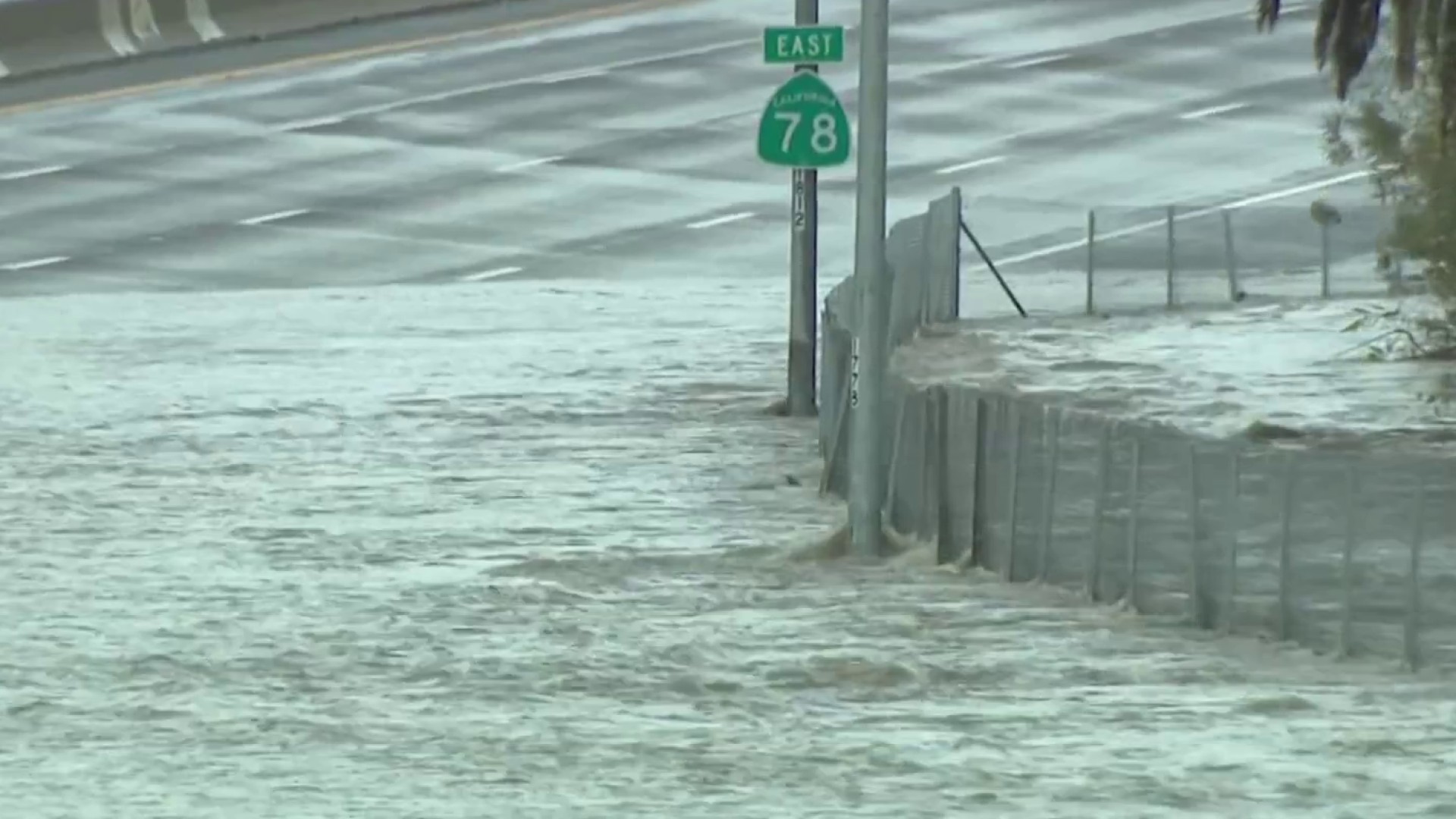Two and a half weeks after more than 150 billion gallons of rain fell on San Diego in about six hours, more than 1,200 San Diegans displaced by the attendant flooding are living in hotel housing provided by a patchwork of local agencies.
According to the Salvation Army, 594 homes were damaged by the floodwaters on Jan. 22, but, unlike in the movies, FEMA has not flown into town to the rescue. Instead, in a story first reported by the Voice of San Diego, hundreds and hundreds of San Diego residents and their pets have scrambled to find a place to, at least, temporarily, call home.
San Diego Storm Coverage
"I wasn't surprised by that number," San Diego City Councilman Sean Elo-Rivera told NBC 7 on Wednesday. "I have been out in the community, and I think that the impact of the floods, while dramatic in a lot of people's eyes, I don't know that the rest of San Diego has appreciated the scale of the impact."
Get San Diego local news, weather forecasts, sports and lifestyle stories to your inbox. Sign up for NBC San Diego newsletters.
By early February, it was local agencies large and small, some with national associations, that were directly responsible for helping out those made homeless by the Great Flood of 2024.
One obvious contributor, of course, is the Red Cross of San Diego, which has been operating overnight shelters since Day 1, first at Lincoln High School, not far from where many were flooded out in Southeast San Diego's Shelltown, Southcrest, Encanto and Mount Hope neighborhoods, where most evacuees spent the night on cots in the gym, then at the Balboa Park Municipal Gymnasium in Pan America Plaza. While the facilities there were better, they put many residents at a disadvantage since they not only lost their homes in the flash-flooding but their vehicles as well and now were further from home.
Since the storm hit, 189 people availed themselves of those resources, according to Brianna Kelly, who is the regional communications manager for the American Red Cross, Southern California Region. However, the agency announced this week that it would be closing down the shelter on Thursday.
It's actually the YMCA of San Diego County and the San Diego Housing Commission who have contributed the lion's share of assistance to the displaced residents. Dan Cruz, who is the association director of public relations and communications at the local Y, told NBC 7 on Wednesday that the nonprofit had provided housing vouchers to 402 people, paying out more than $224,000 in assistance after receiving assistance of $190,000 from multiple groups around the county
San Diego's Historic Storm
Since the storm hit, the San Diego Housing Commission has provided assistance to 485 people, according to Scott Marshall, who is the commission's vice president of communications and government relations. He said the housing commission had referred 267 adults and their 133 children — and their 121 pets as well — for hotels in the region. In addition, Marshall said, the housing commission has a property on Midway Drive that it just bought which had been used as a hotel in the past and that 35 rooms there are now occupied by flooding victims, sheltering 63 adults and 22 kids.
Marshall said that, currently, the maximum length of stay for people is 28 days, but the housing commission is talking to the county about a process being put in place to transition those who were displaced to a county program, which is only now in the process of getting started.
Not all the organizations that have stepped up are governmental. The Chicano Federation of San Diego, whose self-described mission is to "cultivate opportunities and advocate for families and individuals for a more equitable comunidad," has provided housing for 25 families displaced from an affordable housing building (one of nine it operates) on San Diego's Delta Street, where some of the worst flooding occurred. Spokeswoman Veronica Macedo said the federation is putting up those 60-plus residents, including a newborn, in motels in Mission Valley and National City, which the organization — with the support of the community, she stressed — has been paying directly, and is also helping with food and transportation, since many of those who need housing also lost their cars in the flooding.
"With nearly 99% of them being refugee families, the diversity within our Delta community is reflected in the more than seven languages spoken, including Pashto, Farsi, Dari, French, Swahili, Arabic and Spanish," Denisse Newell, the federation's director of housing wrote in an email, highlighting yet another challenge the federation faces offering assistance.
Most of the housing assistance, though, is coming from governmental agencies.
A surprising source of support to the displaced have been local school systems, including San Diego Unified and the San Diego County Office of Education, which have been making federal funds available to "families in crisis." Maureen Magee, who is the communications director for SDUSD, told NBC 7 on Wednesday that the money is not part of the district's general fund, but, rather is distributed via the county office of education, which administrates the program.
For San Diego Unified families, that has translated to 10-day vouchers (many of which have been extended) to 94 families staying in a total of 118 hotel rooms. County office of ed spokeswoman Elizabeth Cox said various other districts around the county have extended the same assistance to an additional 143 families.
"Project Rest is available to all districts and charter schools in the county," Cox said in an email sent on Wednesday to NBC 7. "Since the program was created in April 2022, we have provided more than 1,500 families with hotel stays. In terms of the recent floods, we have assisted 237 families and yes, those numbers include the 94 from SDUSD. Flood assistance has also gone to families from National School District, La Mesa-Spring Valley, Fallbrook, Escondido, San Ysidro and some charter schools."
Cox said the money for Project Rest is from the American Rescue Plan, COVID stimulus money from 2021, and is "specifically earmarked for homeless children and youth through the US Department of Education." The funds are not exclusively for disaster relief, but, like Magee said, target families in crisis.
Here's a look at how those numbers add up:
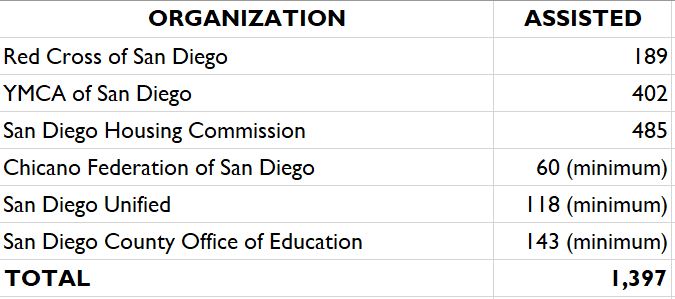
Of course, it's entirely possible that some individual flooding victims have been sheltered by multiple organizations during the period in which they were displaced. For example, it seems likely that some of those whom the Red Cross hosted in its overnight shelters transitioned to hotel rooms accessed for them by the YMCA or San Diego Housing Commission, but what seems clear is that at least 1,200 San Diegans suddenly found themselves homeless on the afternoon of Jan. 22, and that assistance from FEMA has still not arrived.
"And so a partnership began to develop between the housing commission and the community-based organizations that were providing some of that relief," Elo-Rivera said. "And over the last week or so, there's been a handoff of sorts from the community to the housing commission to provide housing resources to those San Diegans who were displaced by the floods."
Help, however, from the federal government may finally be on the way. On Wednesday, California Gov. Gavin Newsom, who issued an emergency proclamation for San Diego the day after the "thousand-year storm," requested an official disaster declaration from President Joe Biden.
"The late January storm saw record-breaking rain in San Diego, where the worst impacts were felt in lower-income neighborhoods," Newsom said. "Many folks saw damage to their life's work that can't be recovered without federal support. I'm requesting a Major Disaster Declaration from President Biden to support communities in San Diego that were hit hard last month."
So, how will that federal assistance work, if it arrives?
"That declaration will help San Diego make the case to the federal government that we need and deserve reimbursement for the public dollars that were laid out in response to this disaster," Elo-Rivera said. "And, just as importantly, that individuals who were impacted can receive some assistance from the federal government. I want to make this clear."
City News Service contributed to this report — Ed.

